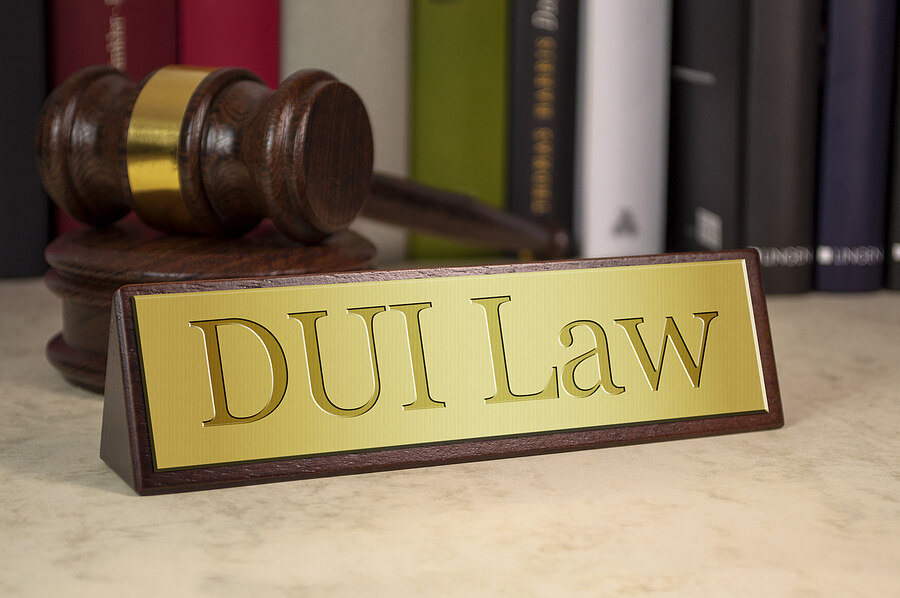What is a DUI?
DUI is one term regarding substance use and intoxication while operating a vehicle. In decades past, it was just called drunk driving.
However, there is a lot more to it than drinking and driving. You may also see it called DWI, which means Driving While Impaired, which alludes to substances other than alcohol. This includes prescription and over-the-counter drugs, or other substances that may affect your ability to operate a vehicle.
How is intoxication determined?
Even if you “feel fine” after a few drinks, you may still be impaired. Impairment may also include one or more controlled substances in the body.
According to Title 10 Offenses Against Public Health, Safety, and Morals (Chapter 49) of the Texas Penal Code, a person is legally intoxicated if they have an alcohol blood level of 0.08 or higher. This concentration varies depending on how police took the sample.
Police test blood alcohol levels three ways.
- Through a Breathalyzer if you reach 0.08 grams of alcohol per 210 liters of breath or higher, you are legally intoxicated.
- Through a blood test, the limit is 0.08 grams of alcohol per 100 mL of blood.
- A urine test can also measure ethanol levels in the blood, and 0.08 grams per 67 mL of urine.
- Higher levels of intoxication may result in higher levels of misdemeanors charged against you.
Even if you aren’t driving a car, police can arrest you for driving amusement park rides, heavy equipment, boats, or aircraft. A DUI is a Class B misdemeanor with a minimum jail time of 72 hours. A blood alcohol level of 0.15 or more may bump your charges up to a class A misdemeanor.
Costs of the offense
If you are convicted
, as per the Texas Department of Transportation, you may face:
#1. A first offense
- You can face a $2,000 fine
- Additional state fine of $3,000
- You could spend up to 180 days in jail (including the mandatory 72 hours)
- You could lose your driver’s license for up to one year
#2. Second offense
- A repeat offense could get you a fine of up to $4,000
- Additional State fine of $4,500
- Mandatory one month and up to a year of jail
- You could lose your license for up to two years
#3. Third offense
- $10,000 fine (mandatory)
- Additional State fine of $6,000
- Two to 10 years in prison, minimum
- Loss of your license for up to two years
Other expenses
There’s a lot more to a conviction than just the base fees on the TXDOT website.
Here are a few others to keep in mind:
- Other expenses may include DWI classes, also called Alcohol Education Classes, which vary in cost depending on the provider, usually anywhere between $90 and $125. At the very least, you are looking at giving up at least four hours a day to attend these classes for about 32 hours.
- Annual fees just to retain your license may also be applied, which are around $2,000 per year.
- Ignition lock/breathalyzers run about $70-100 per month
- Monthly probation fees are around $60-100 per month for every month you are on probation
- Time lost at work dealing with court hearings as well as serving time can also cost you, since time missed from work is lost money. A DWI might also affect your job, such as if your job requires a CDL or any other kind of certification to operate equipment on the job site.
- Your auto insurance premiums will rise significantly
- Impoundment fees for when police hold your car. It varies per city, but the costs can escalate
- Being without a driver’s license, having a DWI on your record, and other factors might make keeping your job or finding gainful employment with a conviction extremely difficult. A Class A or B misdemeanor can follow you around for a very long time.
Cost of hiring an attorney
Though retaining an attorney can be expensive, if you compare the amount just in dollars for a DWI conviction versus the retainer and legal fees associated with your case the difference is justifiable. In just knowing that you have an expert at navigating the legal system, who knows case law, statutes, and other tactics to make sure you are fairly represented in a court of law, it is almost impossible to put a price on that kind of emotional security.
An attorney can work through the court system to make a prosecutor have to work their hardest to show that the burden of proof against you is valid for conviction. Fair representation protects your rights and at the very least, having a skilled attorney on your side can lessen the sentencing if you do face a conviction.
Multiple offenses may increase the severity of the sentence, and an attorney can help you navigate the process, as they know the courts, the judges, and can work with the system to make sure you are treated fairly.
This may include requesting alcohol DWI courses and other programs. Your lawyer will have all sorts of tools at their disposal to help you through the case. There is a chance you can beat this with the help of a skilled attorney. It’s exponentially more likely than plea bargaining or trying to handle the case on your own.
Contact an attorney today
Your livelihood, your rights, and not to mention the severe costs you must pay if you are convicted, are serious business. Hiring an attorney allows you to have your day in court. Your attorney will fight diligently for your case. A skilled attorney will know the ins and outs of the legal process, from whether police properly calibrated instruments to whether they collected sufficient evidence against you.


